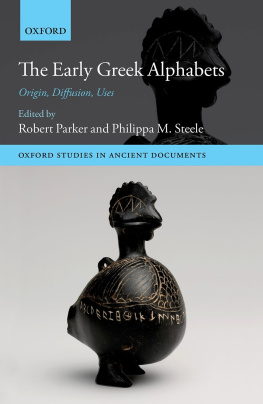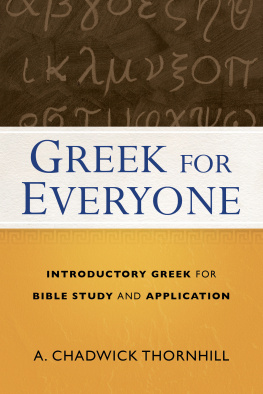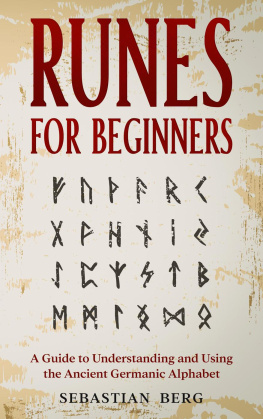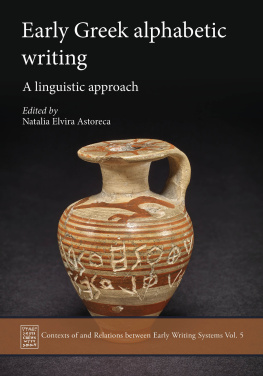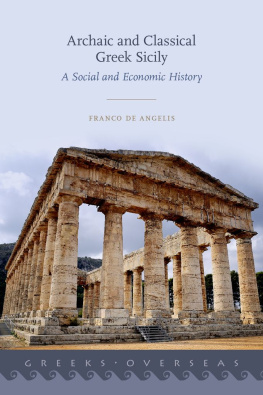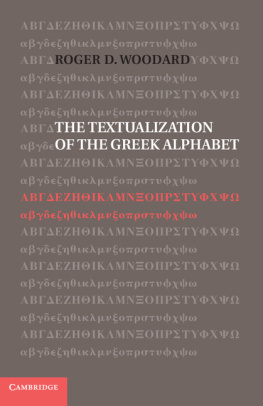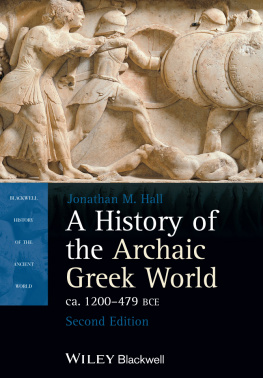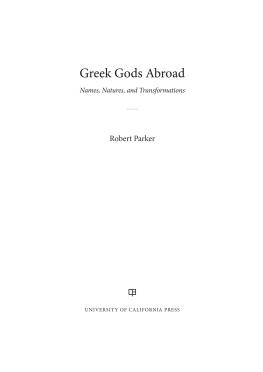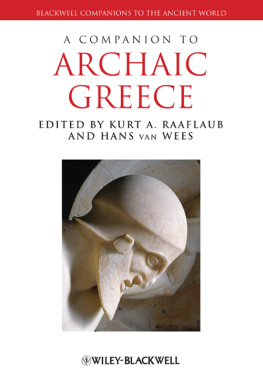Oxford Studies in Ancient Documents
This innovative series offers unique perspectives on the political, cultural, social, and economic history of the ancient world. Volumes include new editions and commentaries on ancient documents, interdisciplinary explorations of inscriptions and papyri, and thematic volumes that explore the boundaries of ancient documentary studies and offer new approaches to imaging, decipherment, and interpretation.

Great Clarendon Street, Oxford, OX2 6DP, United Kingdom
Oxford University Press is a department of the University of Oxford. It furthers the University's objective of excellence in research, scholarship, and education by publishing worldwide. Oxford is a registered trade mark of Oxford University Press in the UK and in certain other countries
Oxford University Press 2021
The moral rights of the authors have been asserted
First Edition published in 2021
Impression: 1
All rights reserved. No part of this publication may be reproduced, stored in a retrieval system, or transmitted, in any form or by any means, without the prior permission in writing of Oxford University Press, or as expressly permitted by law, by licence or under terms agreed with the appropriate reprographics rights organization. Enquiries concerning reproduction outside the scope of the above should be sent to the Rights Department, Oxford University Press, at the address above
You must not circulate this work in any other form and you must impose this same condition on any acquirer
Published in the United States of America by Oxford University Press
198 Madison Avenue, New York, NY 10016, United States of America
British Library Cataloguing in Publication Data
Data available
Library of Congress Control Number: 2021934331
ISBN 9780198859949
ebook ISBN 9780192603838
DOI: 10.1093/oso/9780198859949.001.0001
Printed and bound in the UK by
TJ Books Limited
Links to third party websites are provided by Oxford in good faith and for information only. Oxford disclaims any responsibility for the materials contained in any third party website referenced in this work.
In memory of L. H. Jeffery
Preface
This volume has its origin in a conference held in Oxford in 2016, 'Archaia Grammata. The Local scripts of Archaic Greece. A conference in memory of L. H. Jeffery (1915-1986)'. The idea of commemorating Anne Jeffery, 40 years after her death, was suggested by Angelos Matthaiou. The location, Oxford, was the natural one, as this was where Jeffery completed her doctorate and taught, a much-loved figure, throughout her career. (As an undergraduate she studied in Cambridge, and had begun doctoral work there, interrupted by war work.)) to two refugees from an earlier Oxford conference on the development of the Greek alphabet that never proceeded to publication.
Charles Crowther played a central role in planning and organizing the conference. Robert Parker acknowledges with gratitude a generous grant from the Ludwig fund of New College that covered conference expenses. Philippa Steele conducted her editorial work on this volume in her role as director of the project Contexts of and Relations between Early Writing Systems (CREWS) at Cambridge University, which has received funding from the European Research Council (ERC) under the European Union's Horizon 2020 research and innovation programme (grant agreement No. 677758). We thank Kim Richardson for her careful copy-editing, and at the OUP especially Karen Raith, Henry Clarke and Kalpana Sagayanathan.
), with a charming photograph.
Contents
Introduction
Robert Parker and Philippa M. Steele
The Genesis of the Local Alphabets of Archaic Greece
Rudolf Wachter
Sounds, Signs, and Boundaries: Perspectives on Early Greek Alphabetic Writing
Nino Luraghi
Writing and Pre-Writing in Early Archaic Methone and Eretria
Rosalind Thomas
Contextualizing the Origin of the Greek Alphabet
Roger D. Woodard
Dodona and the Concept of Local Scripts
Alan Johnston
The Pronunciation of Upsilon and Related Matters: A U-Turn
Julin Mndez Dosuna
Letter Forms and Distinctive Spellings: Date and Context of the 'New Festival Calendar from Arkadia'
Sophie Minon
Local Scripts on Archaic Coins: Distribution and Function
Andrew Meadows
Regions within Regions: Patterns of Epigraphic Habits within Archaic Crete
James Whitley
New Archaic Inscriptions: Attica, the AtticIonic Islands of the Cyclades, and the Doric Islands
Angelos P. Matthaiou
Boiotian Inscriptions in Epichoric Script: A Conspectus of Recent Discoveries
Nikolaos Papazarkadas
Etruria between the Iron Age and Orientalizing Period and the Adoption of Alphabetic Writing
Enrico Benelli and Alessandro Naso
The Greek Alphabet in South-East Italy: Literacy and the Culture of Writing between Greeks and Non-Greeks
Kathryn Lomas
Enrico Benelli is a Researcher in the Institute for Studies on the Mediterranean in the Italian National Research Council (CNR); from 2004 he has been the editor of the Thesaurus Linguae Etruscae and the Corpus Inscriptionum Etruscarum. He was Working Group Leader in the COST (European Cooperation in Science and Technology) Action 'Ancient European Languages and Writings' (AELAW) from 2015 to 2019.
Alan Johnston is Emeritus Reader in Classical Archaeology at University College London. He prepared for publication the revised edition of Local Scripts of Archaic Greece and continues to work on such material. Currently he is also engaged in the British Museum on republication of the pottery excavated at Naukratis and completing a catalogue of the amphora stamps in the collection.
Kathryn Lomas is Honorary Research Fellow in Ancient History at the University of Durham. Her main research interests are in the history and archaeology of pre-Roman and Roman Italy, and in cultural identities in the ancient world. Her most recent publication is The Rise of Rome: From the Iron Age to the Punic Wars, 1000-264 bc (London, 2017).
Nino Luraghi is Wykeham Professor of Ancient History at the University of Oxford. He has worked mostly on Greek ethnicity and on tyrants in ancient Greece. He is currently engaged in a project on the political culture of early Hellenistic Athens.
Angelos P. Matthaiou is the secretary general of the Greek Epigraphic Society, editor in chief of the journal (1983-) and director of the journal (2012-). is research interests are in Greek Epigraphy and Attic Topography. His latest publication is 4 ... (Athens, 2019).
Andrew Meadows is Fellow and Tutor in Ancient History at New College Oxford, Director of the Centre for the Study of Ancient Documents in the Faculty of Classics, and an Honorary Curator at the Ashmolean Museum. He is currently the Principal Investigator of the joint AHRC-ANR-MINECO-funded project ARCH (Ancient Coinage as Related Cultural Heritage) and of the ERC-funded project CHANGE (The development of the monetary economy of ancient Anatolia, c.630-30 bc).
Julin Mndez Dosuna is Professor of Greek Linguistics at the University of Salamanca. His most recent research revolves around the ancient Greek dialects, with a particular focus on the lead tablets from Dodona, 'irrational polysemy', and sexual metaphors in Aristophanes.

